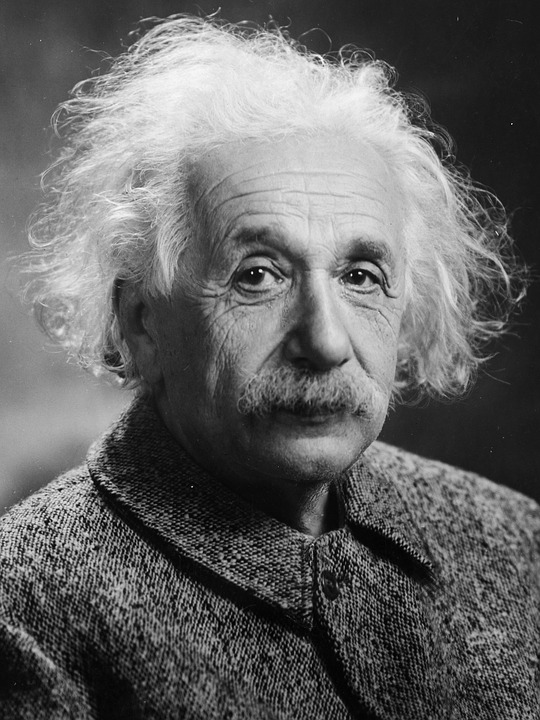Albert Einstein has been termed as a scientist of the century and has become a synonyms of intellect. Einstein was the greatest genius of his time, a man whose contributions to science and mathematics have been matched by just a handful of others throughout history. Anyone in the society who is somewhat innovative in his thinking is always compared with Einstein. Einstein is known for all his great scientific discoveries like photoelectric effect, special and general theories of relativity, inventing a fridge, Brownian motion, and many more which are well described in many text books and research papers. Theories put forward in 1905 are being experimentally at present and giving new insights into vast horizons of science of nature. Albert Einstein was a great scientist but he was also a man with many other aspects of life other than science only.
Einstein was born in Ulm, Germany in 1879. He moved to the United States at a time when the Nazi regime put a $5,000 bounty of his head. He was even featured in a German magazine listing a roster of enemies of the state along with the phrase "Not yet hanged." However, there are many surprising facts related to this great scientist as a common man. This article will present some lesser known facts about Einstein to readers so that they can know more about this great scientist. Some of the lesser known facts about great scientist Alber Einstein are thus summarized as:
- Einstein was born with such a large head that his mother thought he was deformed His brain had a parietal lobe that was 15% larger than the average brain.
- Surprisingly, Einstein was a slowly learner and had speech difficulty as a child.
- Einstein’s mother, Pauline, was an accomplished pianist and wanted her son to love music too, so she started him on violin lessons. At first, Einstein hated playing the violin. When Einstein was 13-years old, he quickly changed his mind about the violin when he heard the music of Mozart. With a new passion for playing, Einstein continued to play the violin until the last few years of his life.
- At the age of 17, Einstein applied for early admission into the Swiss Federal Polytechnical School. He passed the math and science sections of the entrance exam, but failed the rest. He had to reapply for the same a year later
- This genius was famous for having a bad memory. He couldn’t remember names, dates and phone numbers.
- Albert Einstein had no car of his own and he also never learned how to drive.
- Albert Einstein didn’t like to wear socks.
- Einstein was inspired by a Compass. When he was five years old and sick in bed, his father showed him something that sparked his interest in science: a compass.
- Galileo Galilei was Albert Einstein’s favorite scientist.
- Einstein’s great breakthroughs came from visual experiments performed in his head rather than the lab.
- Einstein had an illegitimate daughter with a fellow former student Mileva Marić. The child was born in 1902.
- Austrian physicist, Friedrich Hasenohrl published the basic equation E = mc2 a year before Einstein did.
- Einstein never received a Noble Prize for Relativity. It was actually for the discovery of Photoelectric Effect law.
- More than two decades after publishing his Special Theory of Relativity, Albert Einstein co-invented a refrigerator (with his former student Leo Szilard) that operated on compressed gases. The Einstein-Szilard refrigerator was patented in 1930 but was soon overshadowed by freon-based compressors that were more efficient, but more damaging to the environment.
- Einstein, Darwin, Allan Poe & Saddam Hussein all married their first cousins
- Einstein was offered the Presidency of Israel, which he politely declined.
- Albert Einstein considered himself an Agnostic, not an Atheist.
- Hours before his death, Einstein was still attempting to prove his Theory of Everything.
- Pathologist, Thomas Harvey at Princeton Hospital, who conducted an autopsy on Einstein’s body stole his brain and kept it in a jar for 20 years.
- Einstein himself did not create the atomic bomb or even work on the Manhattan Project (he was denied the security clearance by the U.S. Army, which looked askance at his left-leaning politics). But both Einstein’s letters to then-U.S. President Franklin D. Roosevelt outlining the theory of a uranium fission bomb and his famous formula, E=mc², linking mass and energy, helped spur the development of nuclear weapons. Einstein later regretted his involvement, telling Newsweek that “had I known that the Germans would not succeed in developing an atomic bomb, I would have done nothing.”
